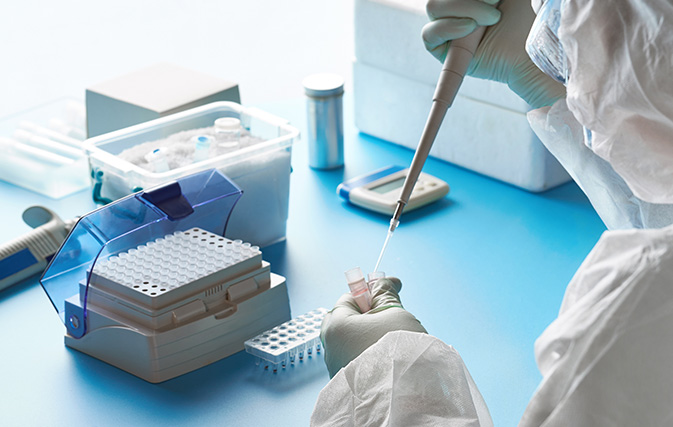TORONTO — Canada’s airlines are providing new information to help passengers secure PCR tests for COVID-19 in the wake of the federal government’s new requirement, effective Jan. 7, that all passengers arriving in or returning to Canada must present proof of a negative PCR test within 72 hours of their scheduled departure.
The new rule applies to all passengers ages 5 and up and results must be shown to airline representatives before boarding the flight.
Airlines including Air Canada, WestJet, Sunwing and Transat have all posted updates to their websites with the new requirement, as well as resources to help passengers get their PCR tests done.
Here’s a list of info pages:
For Air Canada, click here.
For WestJet, click here.
For Sunwing, click here.
For Transat, click here.
As the National Airlines Council of Canada (NACC) pointed out in the wake of Ottawa’s Dec. 30 announcement, Canada’s airlines have been calling on the government for months to introduce a coordinated and systematic testing regime, in conjunction with industry, “in order to avoid a rushed and disjointed rollout of testing requirements,” said NACC President and CEO Mike McNaney.
McNaney added that the Dec. 30 announcement “occurred without prior coordination with industry, and with many major operational and communication details still to be determined.”
Late in the afternoon on Dec. 31, the federal government announced that the new rule would take effect Jan. 7, and that the 14-day quarantine would remain in place.
WestJet spokesperson Lauren Stewart told Travelweek that in addition to building out the new webpage with the requirements, WestJet has also sent an email to all passengers with near-term itineraries to ensure they are aware of requirements. “We still have little detail so are doing our best to ensure our guests are aware and armed with as much information as we have at this time,” said Stewart.
Sunwing also issued a statement, telling Travelweek: “Our customers are extremely important for Sunwing. That’s why we strive to provide consistent, regular updates on the new testing requirements that are being mandated by the Canadian government, all in an effort to be transparent and ensure their experience is as frictionless as possible. We also rely on our Sunwing representatives in destination to offer firsthand support to customers – in person and via the Sunwing app – to address any questions or concerns they may have about the evolving travel and testing requirements. This includes helping customers find a PCR testing facility, along with arranging transportation to and from the facility, should it be required. While we will continue to update our customers as we receive further updates from the government, we also encourage travellers to visit travel.gc.ca for more information on the new testing requirements.”
IATA BLASTS CANADA’S NEW COVID RULE
On Jan. 2 IATA posted a Canada-specific statement, expressing “deep frustration” with the new COVID-19 pre-testing requirement.
“While the industry for months has been calling for systematic testing to re-open borders without quarantine measures, these pleas have fallen on deaf ears, especially in Canada. Now, in a decision that can only be described as the ‘worst of both worlds’, the government is mandating that passengers provide proof of a negative COVID-19 molecular polymerase chain reaction (PCR) test taken within 72 hours before planned departure to Canada, while at the same time declining to lift existing travel restrictions and quarantine requirements.”
IATA goes on to say: “It is both callous and impractical to impose this new requirement on travellers at such short notice. Moreover, it is completely unrealistic to mandate that airlines check passengers’ compliance with the new rule, as it cannot be the airline’s role to determine if a passenger tried their utmost to get tested or not.
“Canada already has one the world’s most draconian COVID-19 border control regimes, including travel bans and quarantines. Even though COVID-19 testing is an internationally accepted risk-mitigation strategy, there are no plans to adjust the current 14-day quarantine rule nor eliminate the temperature checks airlines are required to perform on passengers wishing to travel to Canada. Moreover, no explanation has been provided as to why a PCR test is the only acceptable test, given that this is not readily available in many countries.”
IATA notes that the severe economic consequences of Canada’s prolonged border closure are already evident. The aviation sector’s direct GDP contribution to Canada’s economy dropped by an estimated US$10.39 billion in 2020 compared to 2019, putting 146,000 Canadian jobs at risk. The year-on-year fall in GDP contribution to the wider travel and tourism economy is estimated at US$21.29 billion with some 286,000 jobs at risk.
IATA says Canada must focus on a well-planned and coordinated introduction of testing inbound travellers as a way forward, and as a replacement for quarantine measures.
“At current infection levels, testing travellers will ensure that opening borders will not pose additional risk of contagion in Canada. We challenge the government to prove otherwise,” says IATA.
IATA is calling on the Canadian government to postpone the Jan. 7 start date until it has further developed testing requirements, and coordinated with the airline industry to achieve realistic implementation timelines. The Canadian government must also develop a policy roadmap to safely re-open borders by managing the risk of contagion with testing as a replacement for quarantine measures.
“We need to start 2021 by taking steps to safely live with COVID-19,” says IATA. “What is the point of implementing testing if it does not result in a lifting of border closures nor quarantine requirements? After nine months of closed borders and confinement, we cannot afford to move in the wrong direction with the disastrous implementation of a counter-productive testing policy.”

